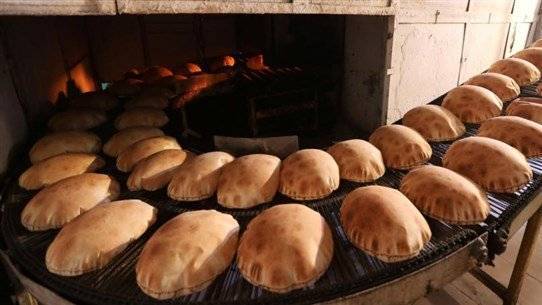The ongoing "wheat crisis" has entered a new chapter, this time marked by pressure from mills and wheat importers on the Central Bank of Lebanon to pay for imported wheat. Unlike previous occasions, the new "scenario" poses the risk of bread shortages, despite the availability of wheat sufficient for three to four weeks at most. Last week, the Central Bank opened credits for four wheat ships that could secure stocks for 20 to 25 days. The problem lies in the fact that the cargo from these ships went to some mills and not others, while the remaining mills are waiting for credits for four additional ships. In other words, some mills have subsidized flour, while others have flour but are awaiting subsidies.
In anticipation of the Cabinet meeting, Ahmad Haytati, head of the Mill Owners' Syndicate, confirmed that "the information about the four ships, which received funds, providing quantities of wheat sufficient for 20 to 25 days is correct. However, the cargoes from these ships cover the needs of the mills that imported them during this period, not the entire needs of the Lebanese market. No mill can replace another or increase its production to cover market shortages." According to Jreis Barberi, Director General of Grains and Sugar Beet, "We cannot ask a mill to significantly increase its production. If there are mills that are operating and others that are not, the quantities available do not suffice to cover the usual duration if all mills were operational."
Haytati mentions that Minister of Economy Amin Salam "informed us that he will propose to the Cabinet in tomorrow's session an increase in wheat credits." However, the big question is what to do until Thursday, especially since "half the mills are stopped. My mill, for example, covers 80% of the needs of the South and the Southern Suburb and has been stopped since Saturday." According to him, "the Minister of Economy clearly stated that the most he can do is to raise the issue with the Cabinet." As for the solutions available until tomorrow, Barberi explains that they revolve around "redirecting the bakeries to the mills that are operational and asking the latter to increase their production as much as possible, knowing that there is a ship we hope the Central Bank will transfer the necessary funds for today (yesterday), which can provide wheat for four mills for 15 days."
In this context, who can guarantee that the crisis will not extend beyond Thursday if the Central Bank does not respond to the government's request for immediate payment? According to those involved, there is always a prevailing "fear, given past experiences, that the Central Bank may not respond quickly enough and that there may be delays." At that point, Haytati states, "it may require personal contacts from the Prime Minister with the Governor to pressure and expedite the matter."
Meanwhile, the state's ability to intervene to fill the gap and spare people from the humiliation and lines that might reappear in front of bakeries is non-existent, due to the lack of any strategic reserves despite a Cabinet decision made at the beginning of March to grant the General Directorate of Grains and Sugar Beet in the Ministry of Economy an advance of 36 billion Lebanese pounds to buy 50,000 tons of wheat to secure Lebanon's needs for a month. Even to this day, "the Ministry of Finance has not approved the advance to formalize it in the Cabinet through a decree, for the Central Bank to later convert the amount into dollars," according to Barberi. As for the $150 million loan from the World Bank, announced by the Minister of Economy less than a week ago, which aims to purchase wheat and maintain the price of a bread bundle, "it will take two months to become effective," the minister said yesterday.
It is noted that last March, the state "discovered" a facility in Baalbek belonging to the Agricultural Scientific Research Department of the Ministry of Economy capable of storing at least 200,000 tons of wheat, in light of the absence of any other storage facility since the wheat silos at the port were damaged following the explosion on August 4, 2019. Barberi clarifies that "there has been a huge propaganda campaign surrounding this facility. I personally inspected it and found that it can only hold up to 40,000 tons of wheat. Therefore, if we import more than 40,000 tons of wheat, we can store the surplus in this facility. But we do not have the funds to begin with for the import, and the best evidence is the advance approved by the Cabinet, which has not been practically realized until now despite more than two months passing since its approval."
Rida Sawaya - Al-Akhbar




